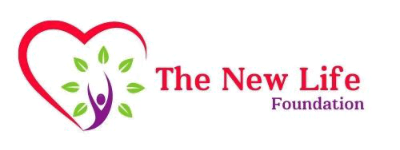There are many methods and programs available to treat substance abuse and addiction, from traditional to alternative, to complementary. More and more programs are focusing on a “whole person” or holistic approach that encompasses a variety of methods and tools to help achieve, maintain, and enhance recovery.
Yoga is a complementary, or adjunct, health practice that is often considered a natural form of medicine. Adjunct means “in addition to,” and not “in place of.” Yoga is often beneficial when used in tandem with other traditional substance abuse treatment methods.
The Yoga Journal describes modern yoga as the use of physical postures to learn how to connect mind, body, and breath to gain self-awareness and focus attention inward. According to data published by US News & World Report, around 21 million Americans practice yoga, a number that has doubled in the past 10 years.
Yoga is increasingly being used in substance abuse treatment programs and throughout recovery to help prevent relapse, reduce withdrawal symptoms and drug cravings, and provide a healthy outlet to cope with potential triggers and daily life stressors.
How Is Yoga Used in Addiction Treatment?
The practice of yoga may help to balance some parts of the brain and body that are impacted by drug abuse naturally. In addition to the physical aspects of yoga, there are also many emotional benefits as well. When practising yoga, people are attuned to their bodies, learn to regulate their breathing, and listen to their bodies. This can create self-awareness of how things may make a person feel a certain way in a nonjudgmental fashion.
By focusing all energy inward, individuals can learn to take ownership of the way they feel and gain control over themselves and their subsequent actions. In so doing, they may also become more self-reliant and self-confident. By recognizing cravings when they occur and not attempting to avoid them or give in to them, for example, a person may be more able to cope with and manage these feelings if they are more physically aware of them when they occur.
Yoga can also increase energy levels, encourage people to eat better, and improve the quality of sleep that may be disrupted by drug or alcohol withdrawal symptoms. When people feel better physically, they are more able to handle stress and anything that may come up during the day. More sleep means a clearer head and lower irritability levels. Physical exercise can also improve self-image, as healthy habits can improve the appearance of the physical body as well.
Many of the 12-Step programs individuals join during treatment and recovery to garner support are steeped in spirituality and spiritual concepts. Yoga can enhance this and help individuals to reach that spiritual connection through breathing techniques and mindfulness meditation. Quieting down all external influences through yoga may help a person to find inner peace through self-reflection and come to a personal realization of what may need to change to improve life.
Yoga goes way beyond just stretching. It can be beneficial as a part of a substance abuse treatment program and can be practised independently as well. When used in conjunction with other traditional therapy practices, yoga can be a wonderful adjunct therapy that individuals can practice throughout their lifetime to calm themselves and improve their clarity of mind whenever needed.
Meditation: A Stress-Relieving & Reflective Practice
Meditation is a wellness practise that focuses on training your mind to pay focused attention. One of the practice’s main goals is to teach participants how to fully embrace the present moment. By focusing on the present rather than the past or future, participants can reach a point of mental clarity, serenity, and stability. Although the tradition originated in India, meditation’s innate ability to reduce stress and relieve anxiety has made the practice extremely popular in Western cultures.
In addition to helping participants better regulate emotions, manage stress, and develop an overall healthier consciousness, research suggests that meditation can physically change the brain. By initiating and creating positive changes in the brain, meditation can help promote healthy behaviour habits, which is extremely beneficial for substance abuse recovery programs. By eliciting positive brain changes, meditation can help recovering addicts uncover some of the underlying issues related to their substance use challenges, which is a key aspect of addiction recovery.
YOGA INCORPORATED WITH RECOVERY
Patients in recovery will deal with many different emotions, including stress and anxiety. Studies have shown that stress could trigger a relapse in people who are recovering from substance abuse, especially alcohol addiction. However, yoga has been shown to help ease the tension and help addicts deal with triggers.
Footprints to Recovery offers yoga programs for individuals who are struggling with substance abuse. The multiple forms of yoga will incorporate meditation, breathing techniques, and movement to help individuals reach a relaxed and mindful state. Yoga should be incorporated as a daily routine for recovering addicts in recovery, especially in the early phase. Yoga is most useful for patients in recovery when they combine it with their regular therapy sessions like 12 step meetings.

